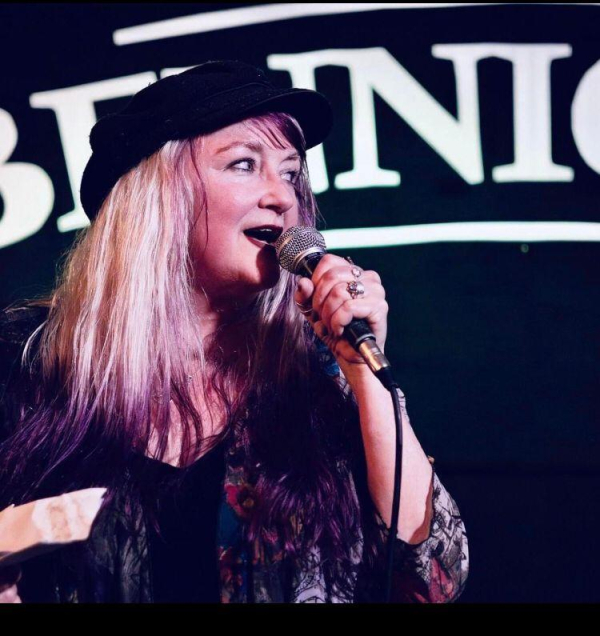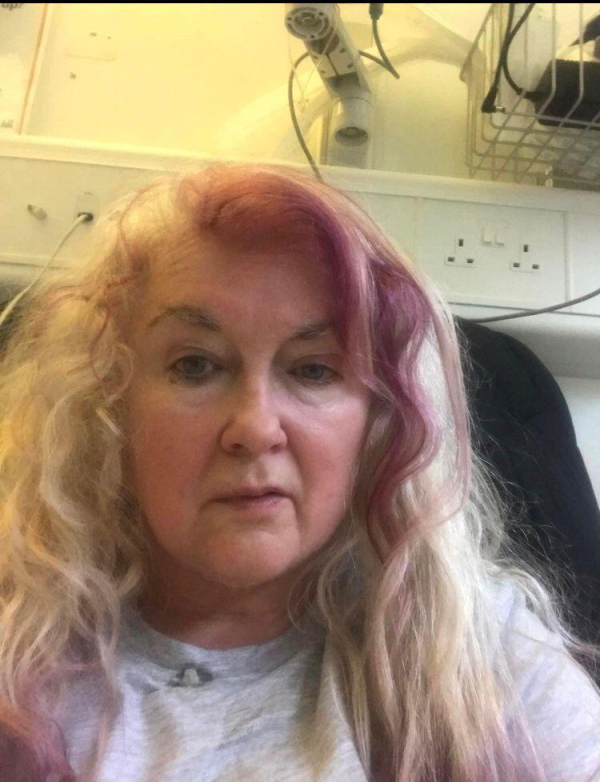
World Stroke Day will be observed on Tuesday (29th October) and Northern Ireland Chest Heart & Stroke (NICHS) is using the day to put a spotlight on this serious, often life changing, condition.
Constance Jordan, from Derry, had a sudden stroke last year at 62 years old and she is speaking out to raise awareness of stroke and how important it is for people to be aware of its signs and to seek medical help immediately if they experience any.
Constance recalls; “I was sitting on my sofa one day and my right arm started to feel funny. It felt heavy and odd and the FAST (Face, Arms, Speech, Time) campaign came to mind so I went into the bathroom and looked in the mirror and saw I could still raise my arms, although not as high as usual. The next minute I could not feel my right arm. I came out of the bathroom and said to my partner, ‘I'm having a stroke’, and by that stage my face was starting to droop. Then my leg started to feel funny too.”
“I knew time was of the essence, so I told my partner to phone 999. By the time the paramedics arrived my speech wasn't understandable. I was rushed to Altnagelvin Area Hospital where I had a CT scan which showed I had bleeding on the brain. At that stage I could not move, and I thought, ‘where is my life going to go now?’, because I really did not know if I was going to walk again, or if I would be able to move my arm again. I started to cry; it was so much to deal with.”
Constance was then transferred to the hospital’s stroke ward to start her rehabilitation. “I was in hospital for five weeks. I could not stand, I could not walk, I was talking but it was not very clear. I spent those weeks totally focused on my recovery journey. I worked on my speech, my facial movements, I worked on trying to get my arm to move, and I was doing leg exercises. I did the exercises a couple of times a day. It was tough but I kept going.”
“The stroke was about emotional as well as physical healing for me. I had this overwhelming love for my body after my stroke. We take for granted how amazing the human body is until something happens, and it doesn’t work in the way we are used to.”

Constance’s recovery journey was difficult, but she tried to find the positives every day. “When I was at the start of my recovery process I used to think, ‘what new old thing am I going to be able to do today?’. Like lying on my right side with my arm tucked under the pillow without pain; tying my shoes; or doing up a zip. Like getting back to my painting class as I thought it would be good for my right arm and hand. Or being able to paint my nails again- I was a nail technician for 15 years so that was exciting for me! I still get excited at the little things I am getting back to being able to do like I used to.”
Constance was referred to Northern Ireland Chest Heart & Stroke (NICHS) after she was discharged from hospital. “One of NICHS’s Care Coordinators visited me at home and recommended I attend their Post Rehab Exercise Programme (PREP) groups. PREP is a physiotherapy led, community-based course which focuses on exercise and education, and I found it to be really useful. It was also good to meet other people who have been through the same thing. Unless you have, you can’t understand what it is like to have, and live with, a stroke.”
Thankfully, Constance has recovered well and has not let her stroke hold her back. “Six weeks after my stroke I performed some stand-up comedy! I have been doing comedy for twenty years and I have never not been prepared, but this was a last-minute thing, and I did not know what to do so I just talked about the stroke. I was using a four-prong cane at this stage and my arm was still badly affected but I just got out there and did it. It was great, and the audience loved it.”
“I have put in the hard work, and I have recovered well. When I am walking it does not feel like I ever had a stroke. My leg is back 100% to how it used to be. I still experience some pain in my right arm, and I do not have the full range of movement, but it is enough. I just kept working on everything to recover as best I could. I had a positive attitude, and I think that really helped. Giving up was never an option for me.”
“To other people who have had a stroke I would say, stay focused on you and your healing. Really get laser focused and it's amazing what you can do. Take it as it comes day by day and just try to be in the present and focus on that.”
Constance concludes; “The FAST campaign helped me realise right away I was having a stroke, and I am eternally grateful for that. If it were not for FAST, I could have died or at the very least, have been completely paralysed. I was lucky that I got all the medical help I needed quickly, I had a positive rehab experience, and after that I got support from NICHS. I just feel lucky that I came through it ok in the end. I feel so grateful.”
Ursula Ferguson, Director of Care Services at Northern Ireland Chest Heart & Stroke, explains: “We are very grateful to Constance for sharing her story in support of World Stroke Day and our charity. Sadly, having a stroke is a life-changing reality for thousands of people in our local community every year.”
“It is therefore important to remind the public about the FAST acronym because as Constance’s story shows, this is vital for recognising the signs and symptoms of a stroke, which usually come on suddenly. FAST stands for:
F- Face- Has their face fallen on one side? Can they smile?
A – Arm- Can they raise both arms and keep them there?
S – Speech- Is their speech slurred?
T – Time- To call 999 if you see any single one of these signs.
The sooner a potential stroke is recognised, and the faster medical help is sought, the better the chances of recovery are.”
“NICHS is here to help people post stroke with expert care and support. The help available from our Care Services team is extensive and includes family support, physical activity programmes, health education programmes, wellness sessions, young stroke groups, and practical and emotional support.”
“Our team works across Northern Ireland with people of all ages affected by stroke, alongside their families and carers. They are dedicated to supporting people in adjusting to life with a stroke condition, helping them to enjoy life to the full, re-engage with hobbies, and improve their confidence, independence, and overall quality of life.”
If you have been affected by stroke visit https://nichs.org.uk/strokesupport for further information about NICHS’s stroke support services.
